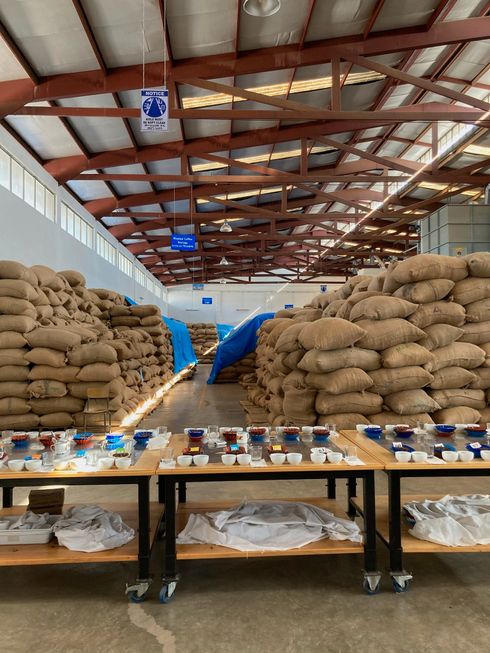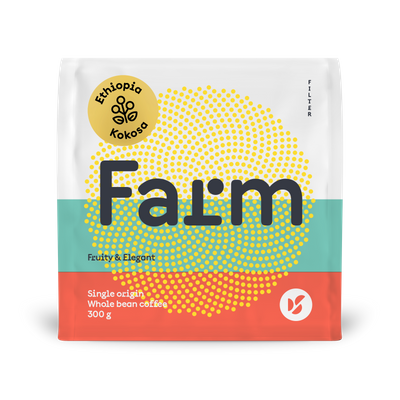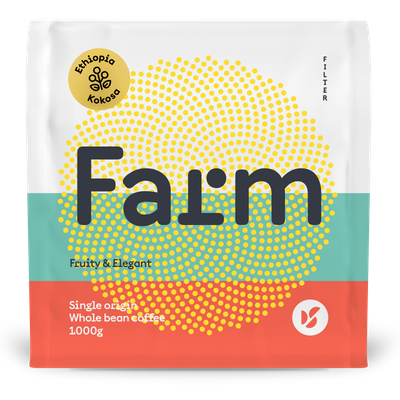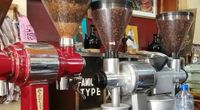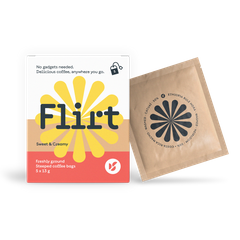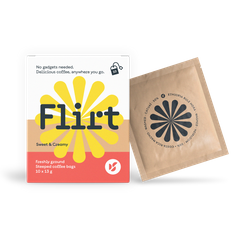
| Country | Ethiopia |
|---|---|
| Farm | Kokosa, Bensa, Sidamo |
| Varietal | Arabica Ethiopian Heirloom |
| Processing | Fully Washed - Kenyan style fermentation |
| Crop | January 2024 |
| Partnership | since 2010 |
| Coffee type | Whole Bean |
| Flavour | Fruity & Elegant |
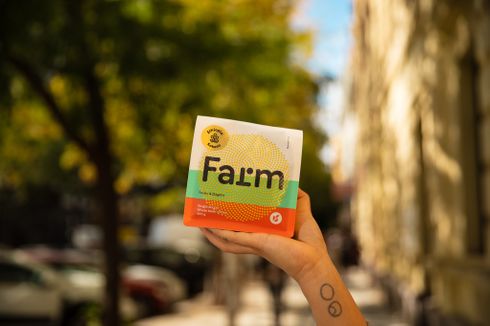
Ethiopia Kokosa
The first washed coffee of the year from Ethiopia is here. Coffee from farmers around the village of Kokosa embodies what we seek in washed coffees – elegant fruit notes and floral aroma.
We selected this coffee with our longtime friend Heleanna during our spring visit to Ethiopia. Coincidentally, all of this year’s coffees come from the same region. The Bensa region is currently the place producing the best Ethiopian coffees.
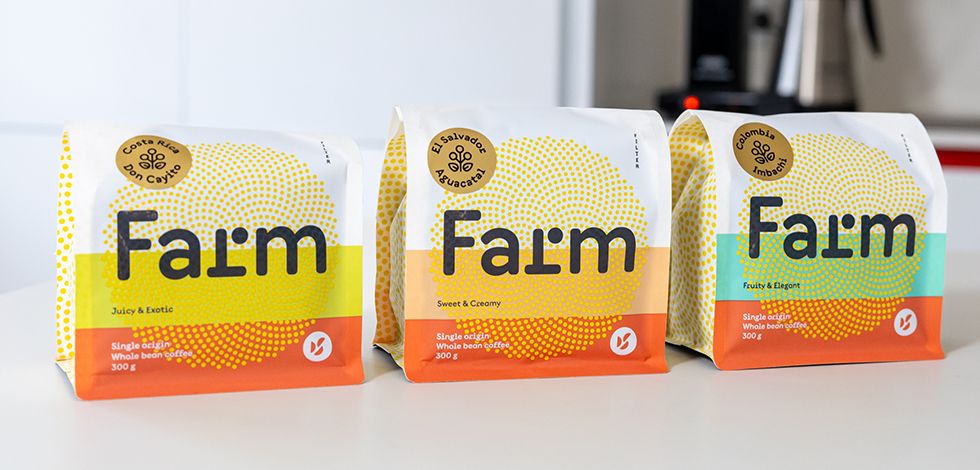
How does this coffee taste?
Fruity and Elegant
This year in Addis Ababa, we tasted dozens of samples from the recent harvest. Our goal was clear: to find coffees with well-defined flavors and intensity. Jarda, who selected the coffee on site, particularly praised the floral aroma of jasmine, the fruitiness reminiscent of peaches, and the honey-like sweetness.
Simply a typical flavor profile of washed coffees from Ethiopia.
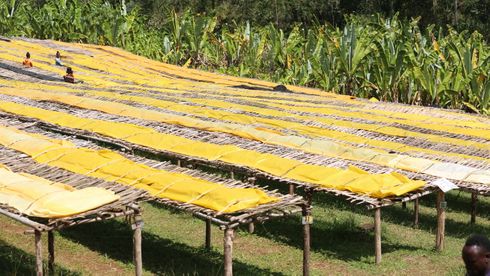
Kokosa Station
The coffee was grown by smallholder farmers around the village of Kokosa in the Bensa region of Sidamo and processed using the Kenyan-style fully washed method at the plant of the same name. The farms, which are usually only a few hectares big, are located at an altitude of 1500 - 2300 m above sea level. This high altitude gives the coffee a floral aromatics and fresh citric acidity. Coffee trees of heirloom varieties are grown here on fertile volcanic soils.
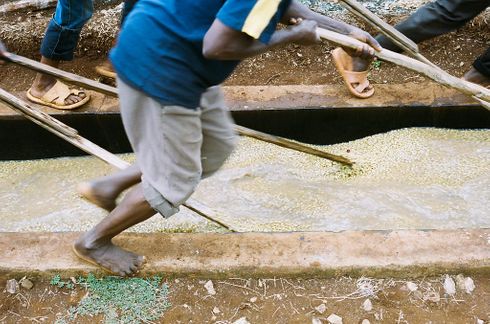
Kenyan style fully washed processing
Kenya has a particularly complicated method of coffee processing, which paradoxically arose out of the need to handle a huge amount of harvested cherries in a short time interval rather than because of the vision of improving the flavor profile. This treatment, which Heleanna used for our microlot, involves two separate fermentation stages and a long soaking stage.
Freshly picked cherries are first pulped and sorted by density. The initial fermentation takes 24 hours. Finally, the parchment beans are washed and graded in channels and freed from the last remnants of the mucilage. They are then returned to the fermentation tank where they spend another 12-24 hours. Finally, the parchment is soaked under water for up to 24 hours. A combination of two fermentations and a final soak results in a more pronounced acidity and thicker fruity notes.
Espro and Tricolate are our favourite ways to bring out the juicy and clean flavour notes of this coffee.
Read our blog post about visiting Ethiopia
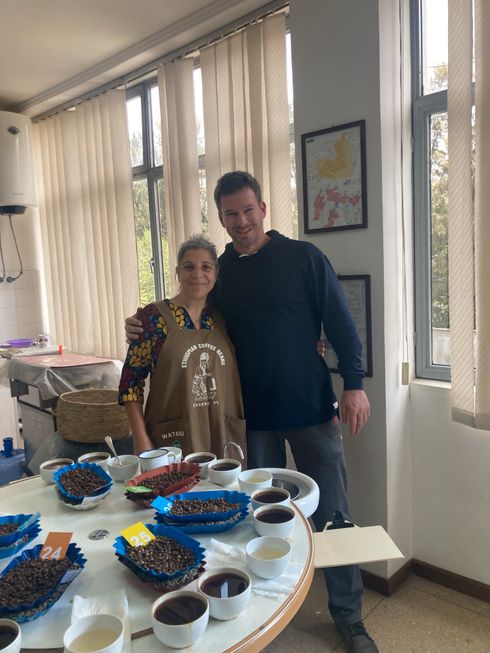
Heleanna Georgalis
Due to the communist revolution, Heleanna was forced to leave Ethiopia and return to Greece with her parents as a child. She studied and worked in the financial sector all over Europe. She returned to Ethiopia to manage Moplaco after the sudden death of her father.
We have been working with Heleanna for over 13 years. Every year we look forward to personally selecting coffees in Addis Ababa, where Moplaco is based and operates a processing plant. Here, the coffees are hulled and thoroughly sorted before being packed in Grain Pro bags or vacuum boxes. In addition to the optical sorter, the green beans are also sorted manually on a belt sorter. The best microlots then go to the static tables, where the workers have enough time to perfectly sort the coffee from any defective beans.
This is followed by a trip to the port of Djibouti, where the container is filled and set off on its journey to Europe. This year's very complicated situation in the Suez Canal unfortunately delayed our container by several months. However, since we also used vacuum packaging for the first time instead of standard Grain Pro bags, the coffees arrived in perfect condition, which we are very happy about.
